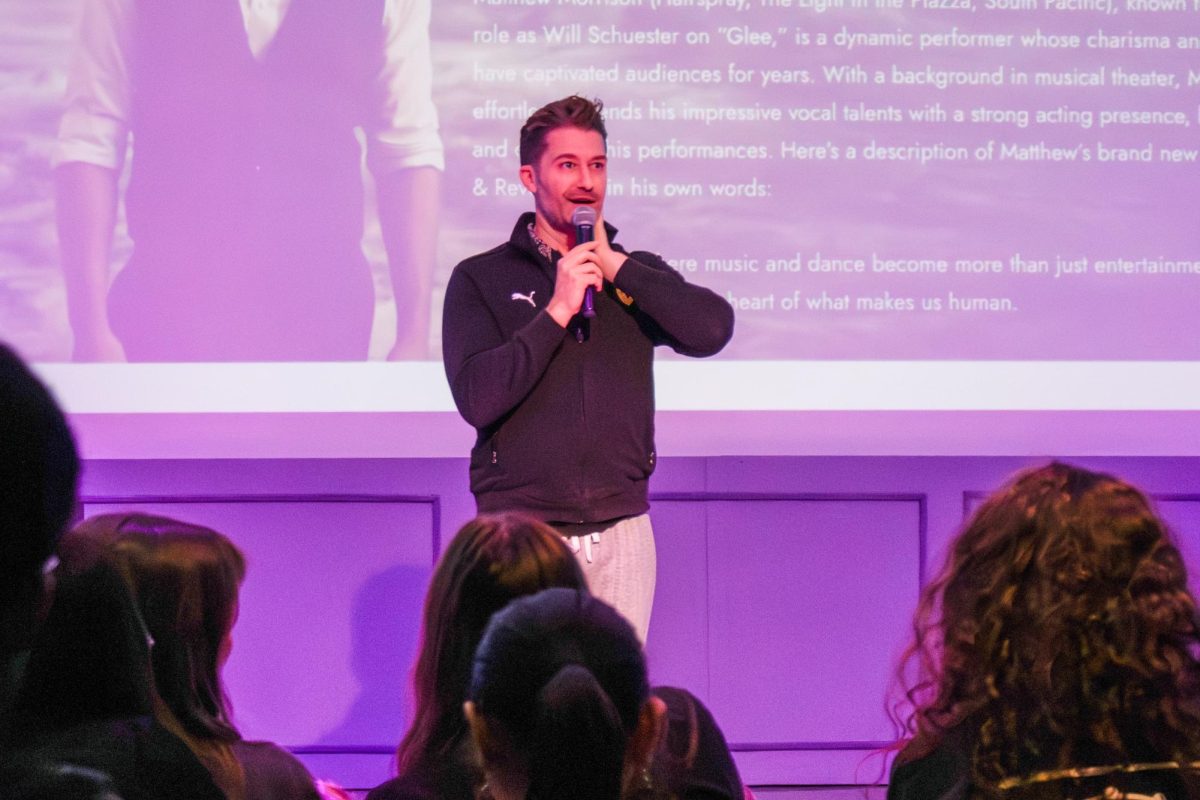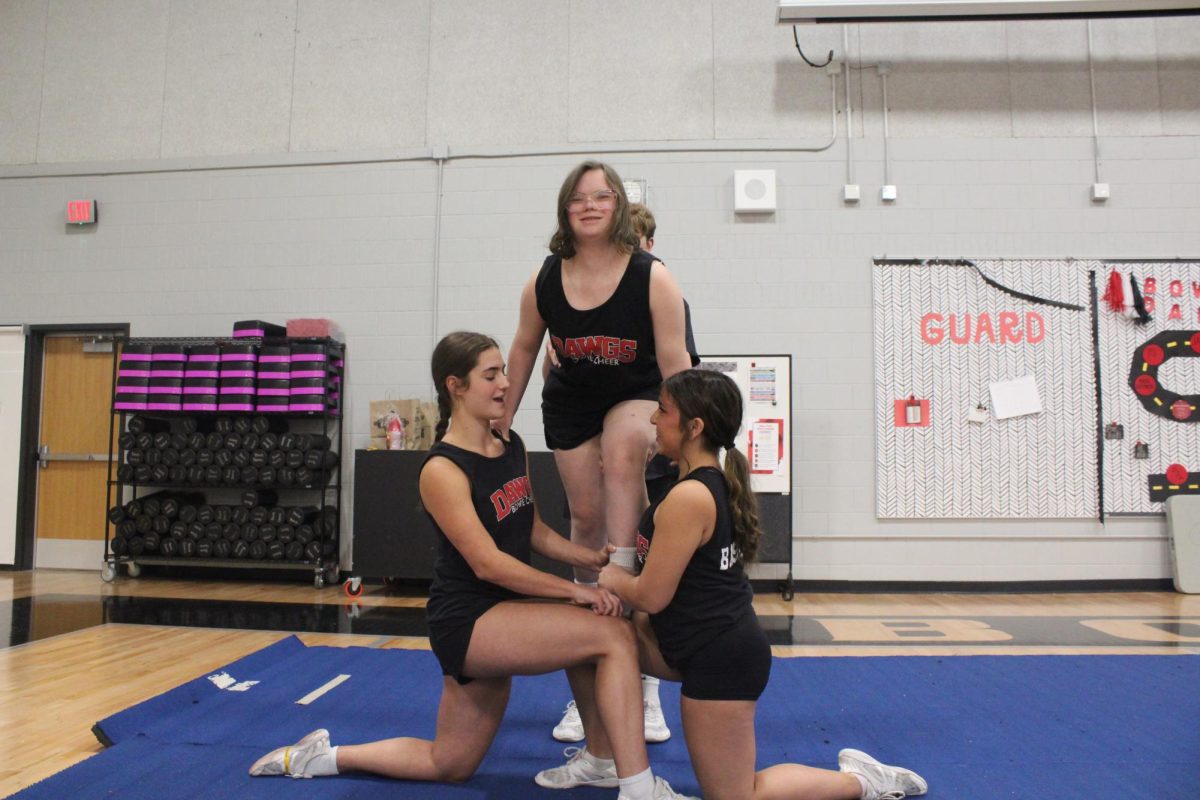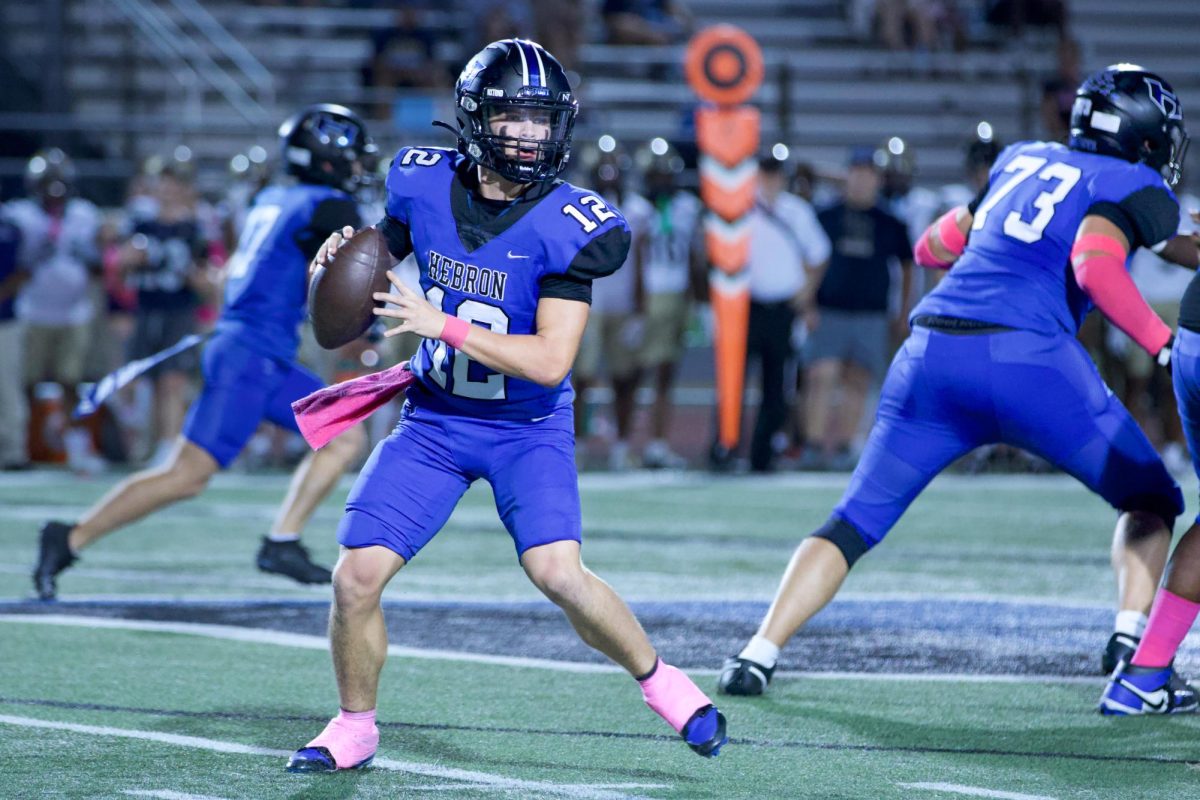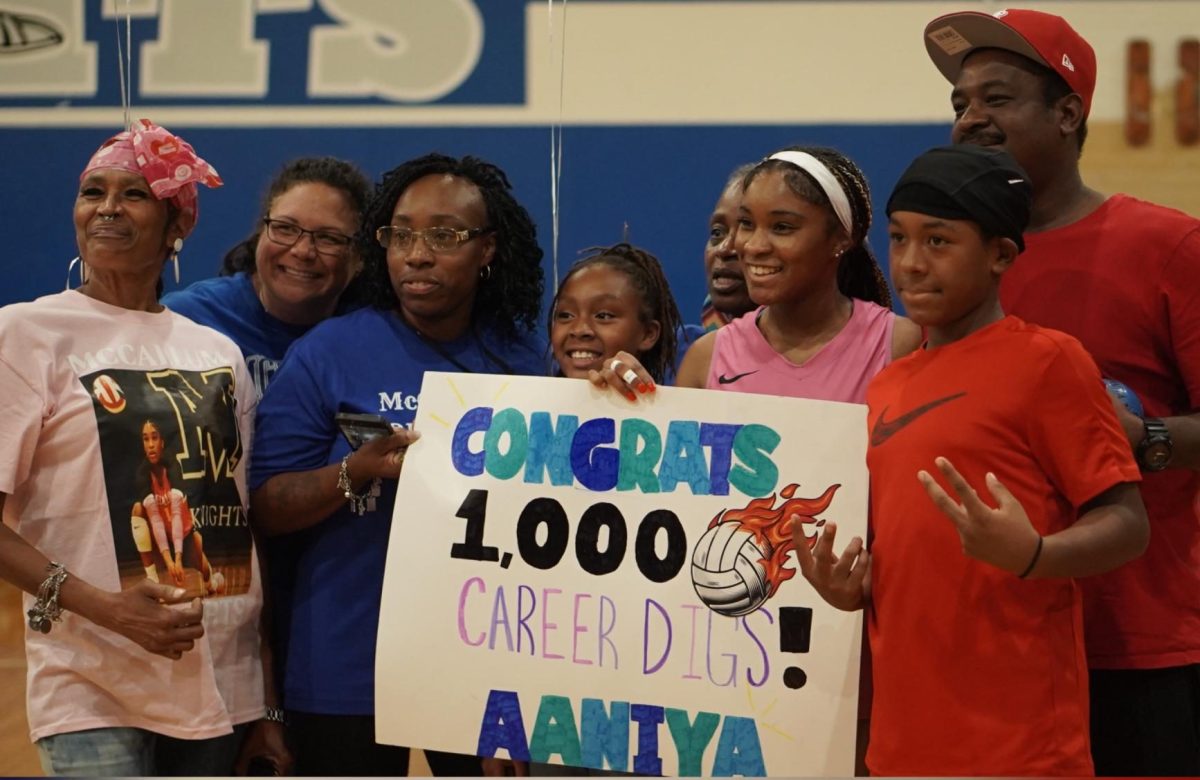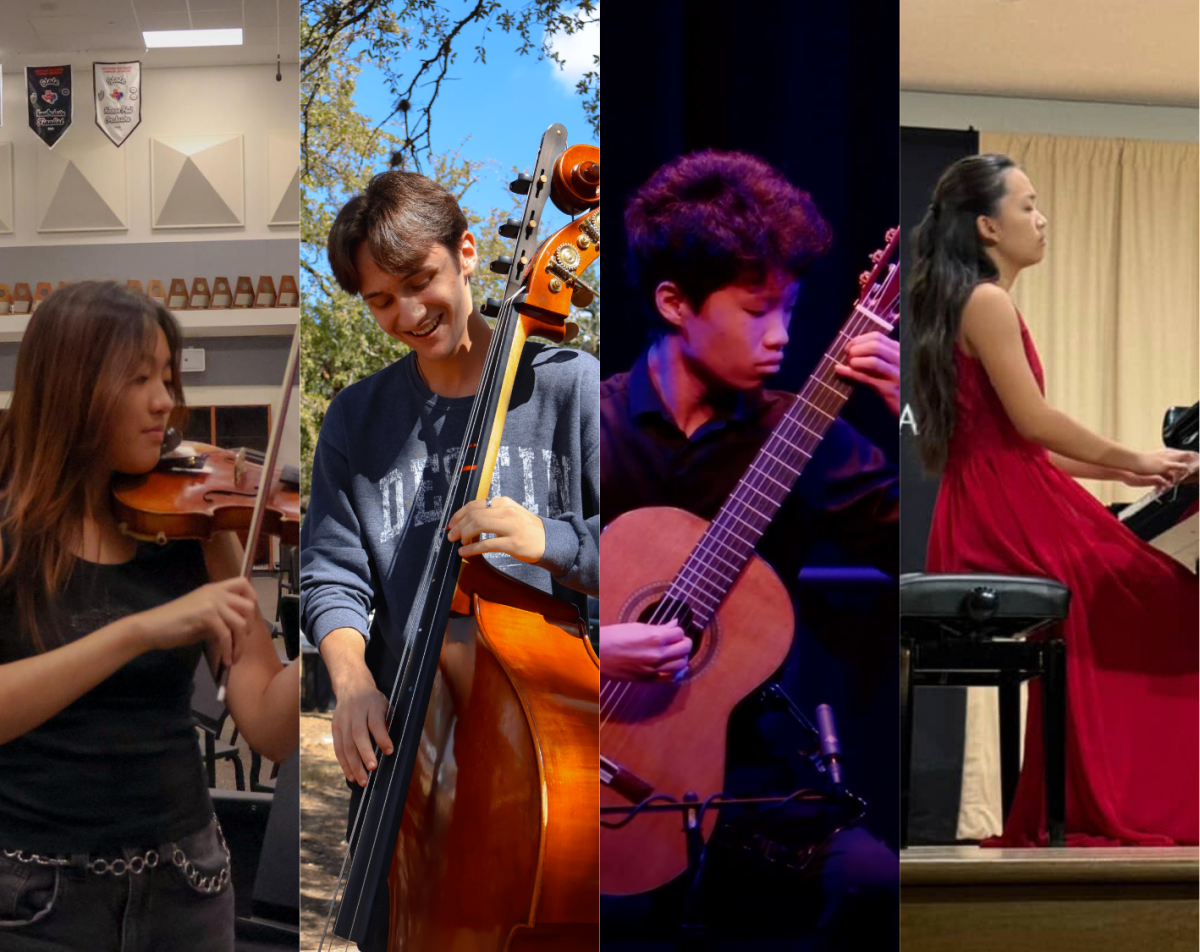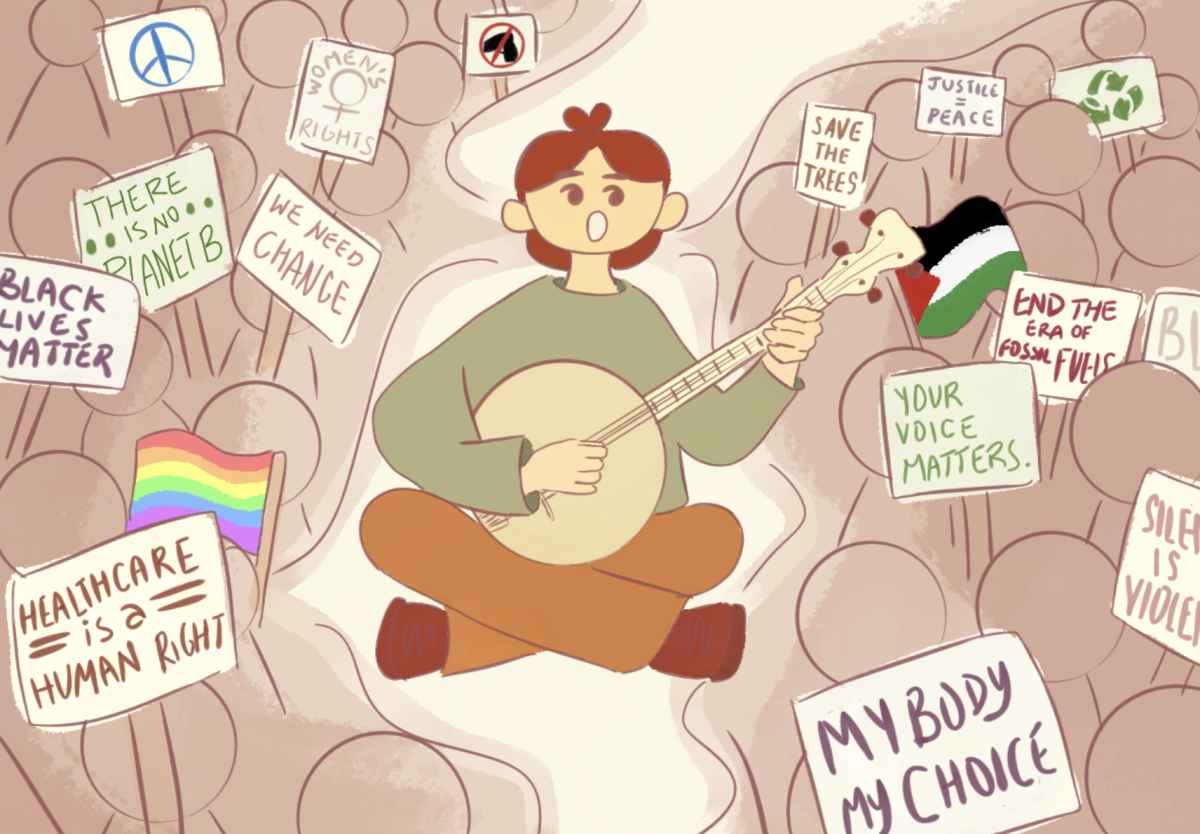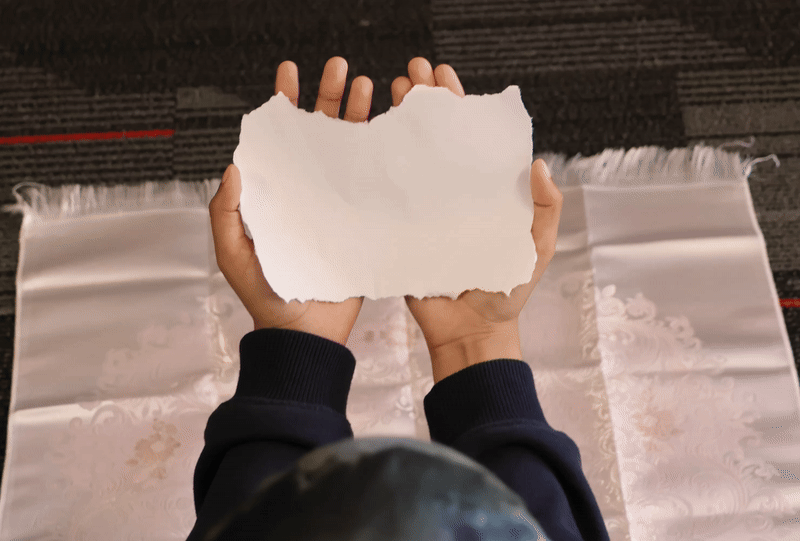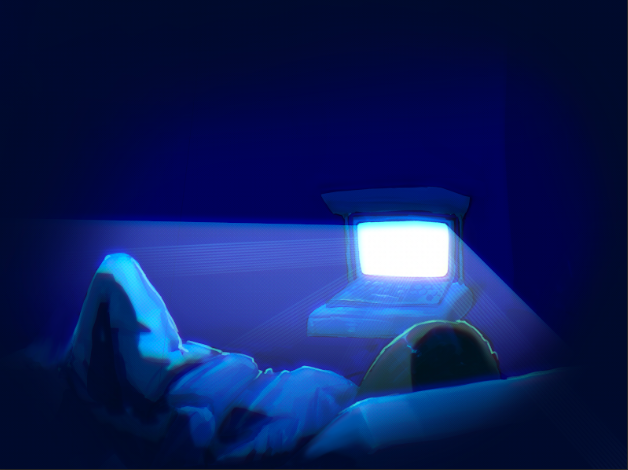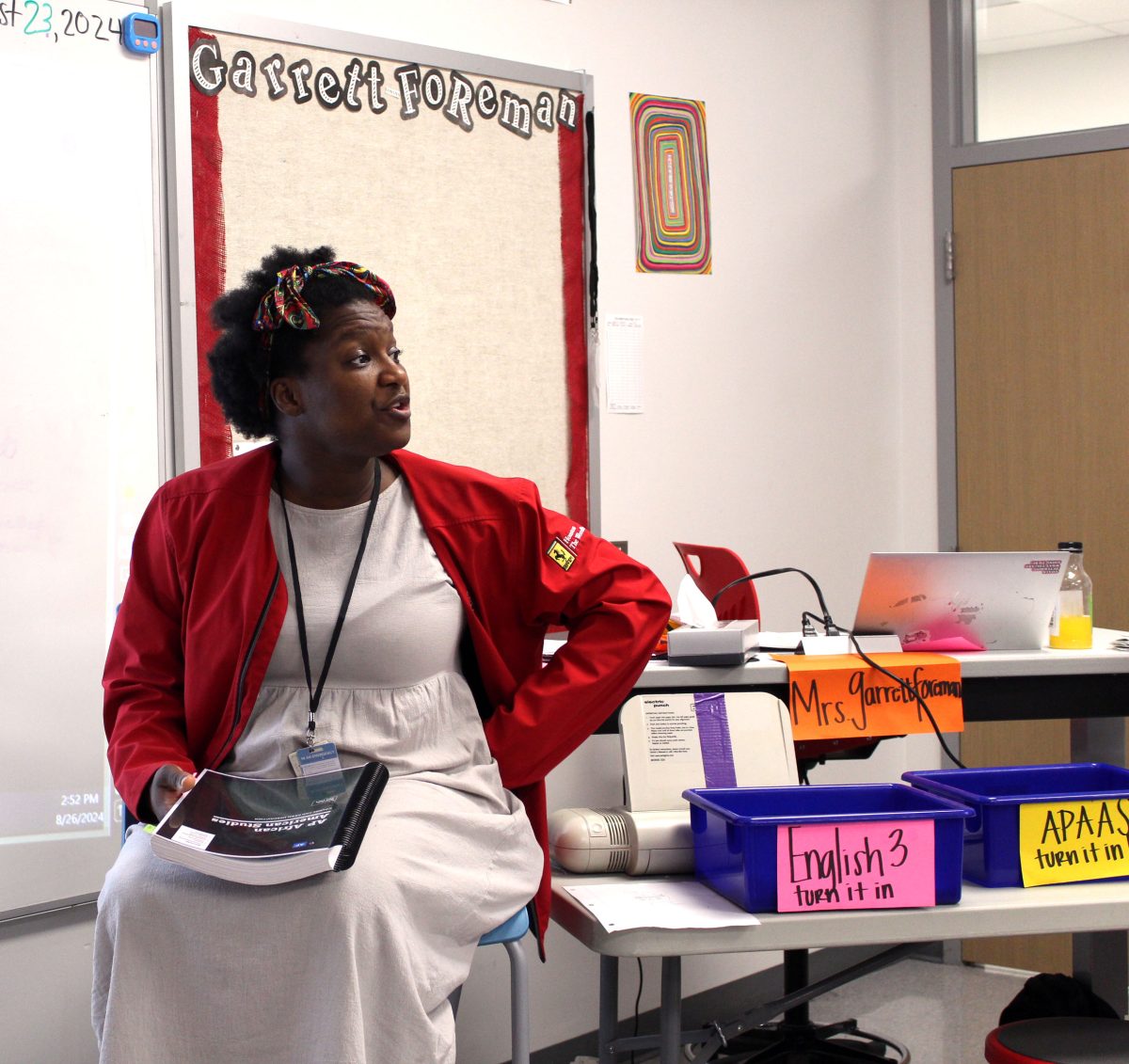Senior Taylor McCuller wants to learn more about Black history than “people in shackles.”
English 3 teacher Jenaya Garrett-Foreman wants her students to have a “broader understanding of African Americans’ contributions to society.”
This school year, both can accomplish their goals as AP African American Studies (APAAS) was introduced to Bellaire High School for the first time.
In 2022, College Board selected 60 schools across the nation to test APAAS as part of its Pilot I program, in which instructors well experienced in a subject create and test a potential course. In 2023, the Pilot program extended to 700 schools.
This year, schools officially launched APAAS in school districts in nearly all 50 states, including Texas. The Houston Independent School District (HISD) added the course to its master course catalog last spring.
“I think everybody pushed for AP African American Studies,” Dean of Instruction Debbie Campbell said. “We were waiting for [the course] to be approved.”
After an email with the list of courses available for the 2024-2025 school year was released last spring, Garrett-Foreman signed up to instruct APAAS, thinking the class “might be fun.”
Garrett-Foreman, who was looking forward to the required training in Las Vegas, said she was disappointed when it was canceled due to invasive budget cuts.
“I had this really heavy weight on my shoulder,” Garrett-Foreman said. “I was actually prepared to send an email to Principal Niggli [saying], ‘Unfortunately, I’m not gonna be able to teach this class. I just don’t have the information that I need to teach it.’”
Before she sent the email to Mr. Niggli, Garrett-Foreman received another email from College Board outlining the new details of AP training – training that now would be held online.
“[Training from home] was okay too, because it [meant] that I get to teach [AP African American Studies],” she said. “So once all of the nerves and overwhelming-[ness] passed, I showed up to school the first day, and I met my students. All has been well ever since.”
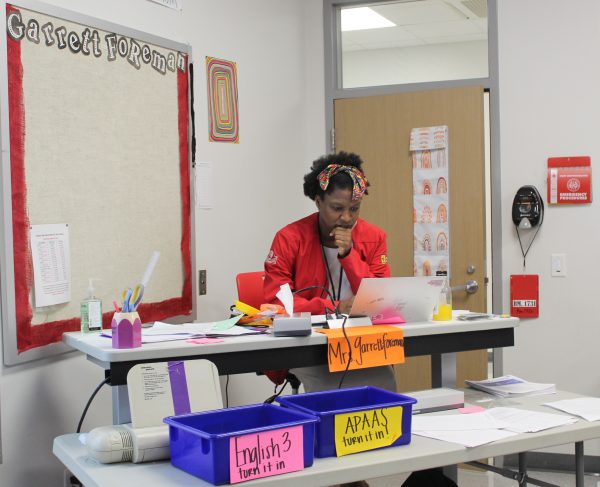
Even after College Board’s week-long training, Garrett-Foreman continues to dig through “anything [she] can get [her] hands on” that gives more information about Black history.
“I study every night,” Garett-Foreman said. “But it’s great, [there’s] so much knowledge and so much to learn. I learn new information that I have to take in and synthesize and then be ready to present to the class every day.”
The curriculum that she and other APAAS teachers across the nation must present includes ancient West African culture, early complex Bantu migration and overcoming racist misconceptions related to African history.
“What the media portrays is not necessarily how [African history] should be [portrayed],” Garrett-Foreman said. “[My AP African American Studies class] watched a video about the size of Africa in relation to other continents [on world maps] and how it is skewed incorrectly, [which] diminishes the impact of the continent.”
Even though the introduction of APAAS in the United States proves hopeful for teaching African American history, Arkansas, Florida, Georgia and South Carolina have taken action against the course. As requested by Florida’s governor Ron Desantis, on Jan. 12, 2023, the Florida Department of Education’s Office of Articulation denied the course to be taught in their schools as it was described as “inexplicably contrary to Florida law” and lacking “educational value.”
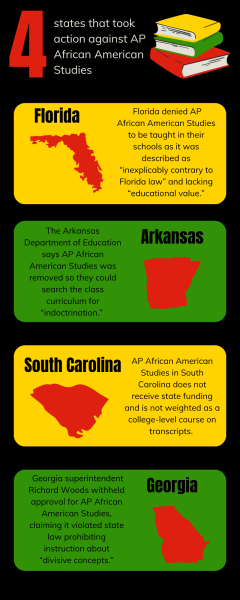
In contrast, Garrett-Foreman noticed in Texas “how excited people are to have the class.” With this support, she dedicates her teachings to enriching the lives of her students.
“I just want my students to grow, whether they grow in really understanding the history of [Africa] and the ramifications of decisions as African Americans that came to the US, or if they grow as students in research and communicating their thoughts and ideas to me,” she said. “As long as you’re growing, you’re on the right track.”
In addition to her self-studying for her APAAS class, Garrett-Foreman finds help in the “small” yet “supportive” community of “diverse [and] inclusive” APAAS teachers and course developers via a private Facebook group.
“Once you take the College Board AP African American Studies [training] class, then you can enter the group,” she said. “You have people who actually created the program and they’re in the group, giving you notes and [saying] ‘Look at this document’ or ‘Show them this resource,’ and it’s really cool.”
Nelva Williamson, Young Women’s Preparatory Academy AP US History, AP World History and APAAS teacher, is a part of this Facebook group. In past College Board surveys asking teachers what new courses they would like to see, Williamson always put African American Studies. She was so passionate about implementing the course that when Texas started restricting instructors from teaching about “critical race theory,” Nelva became “very, very vocal,” appearing in panels and local media channels such as ABC 13 Houston.
As a result of what Williamson calls her “big mouth,” she was selected by College Board to become a teacher in Pilot I and a part of the APAAS development committee. She currently writes questions for the course’s AP Classroom platform. She also taught a group of teachers in New Mexico about the course so they can offer APAAS online to students on reservations.
“I’ve just been a proponent of representation in history,” Williamson said. “Everyone should be represented, because everyone makes this nation the country that we are.”
Williamson said she has studied African American history since elementary school because of her family’s past in education. Her mother taught her the accomplishments of Black Americans and how to be proud of her history. Her great-grandfather, London Williams, helped create the historically Black Morris College in Sumter, South Carolina. Her uncle, a history professor, would tell her all his stories of traveling to Ethiopia, Nigeria, South Africa and many other African countries.
Her father told her that as a result of her Blackness, “99 and a half [percent] won’t do. You have to put in 110 percent [effort] for anyone to believe that you know 50 percent of anything.”
“I grew up in Massachusetts, and [African history] was not the history that we were taught in school,” Williamson said. “So many times people suppress you because you don’t know your history, and you buy into that. But by knowing your history, you’re able to rise above all of that. We didn’t start in slavery. We come from actual kings and queens of Africa.”
Senior Taylor McCuller wanted to take APAAS in her previous years at Bellaire, but it wasn’t available. Now, every third period, she enters Garrett-Foreman’s class to learn a wide breadth of history.
“I think APAAS is important to Bellaire specifically because we have a large Black community, yet have no knowledge about our history,” McCuller said. “When Black people are talked [about] in history classes, it’s always cut short, or it’s only speaking [of] the bad things that happened to us. But what about the good [things]?”
McCuller said she believes that after this year, more people would be willing to take the class as more students “would know about the class, and more people [would] agree with why [Bellaire needs] it.”
Williamson suggests adults also learn from the course. Last year, she had a parent pick up her daughter early to sit in and learn about APAAS. Besides encouraging adults, Williamson urges students of all races and backgrounds to take the class.
“[This course is] not just a Black class for Black people,” Williamson said. “It is a class for all students, for anyone.”
Williamson said APAAS could inspire “a whole suite of ethnic studies,” as classes such as Mexican American Studies and Asian American Studies “are in the works right now for AP and College Board.”
For Williamson, her goal for APAAS is to expand it to other schools nationwide (especially across HISD), encourage teachers to “teach it with fidelity” and make sure college credit for the course is earned by as many students as possible.
For Garrett-Foreman, her goal is to “make somebody proud and do [the class] justice.”
“I hope [AP African American Studies] brings tolerance, understanding and a sense of grace when we think about how we interact with each other,” she said. “I learn new stuff every day. So, if I’m learning new stuff, you will too.”
This story was originally published on Three Penny Press on September 24, 2024.





